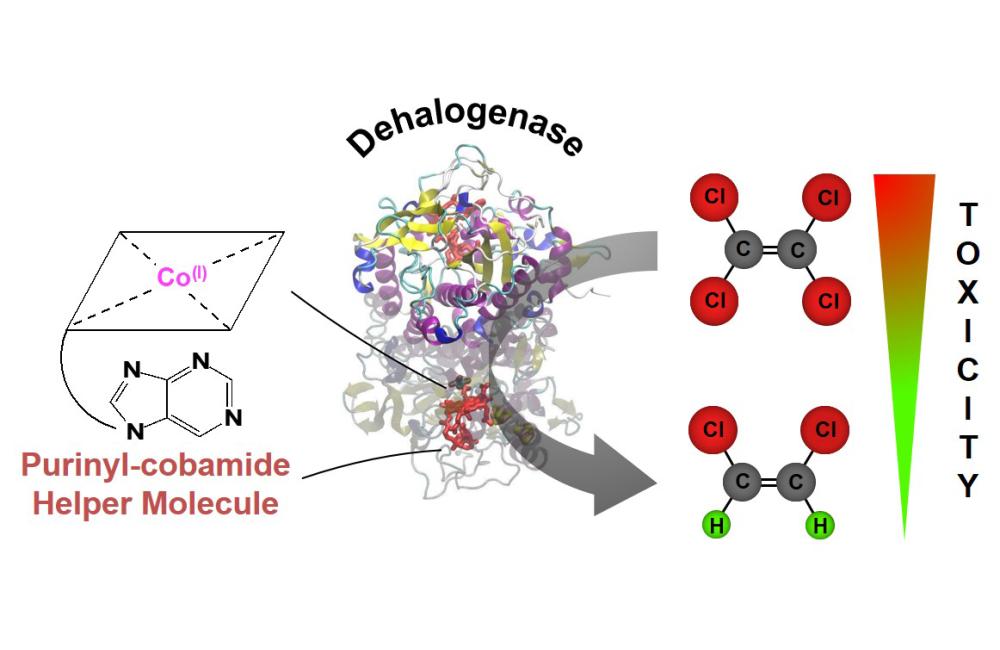December 4, 2017 – An Oak Ridge National Laboratory-led team discovered a function of certain microbes that produces a new derivative of vitamin B12, which is crucial to a cell’s ability to perform life-sustaining metabolic activities. Their findings could ultimately open avenues for novel environmental and water clean-up strategies. “Microbes used to break down contaminants require specific vitamins to function,” said Frank Löffler, UT-ORNL Governor’s Chair for Environmental Biotechnology, who led the research. While studying a specific vitamin B12 derivative, the team revealed modifications of an often-overlooked region of the vitamins’ molecular structure, known as the lower base. This lower base structure determines the function of enzymes that break down toxic chlorinated solvents. “This discovery has potential to enhance the efficacy of current bioremediation approaches, plus it could open new opportunities to affect the progression of certain human diseases,” Löffler added. The team’s findings were published in Nature Chemical Biology.



